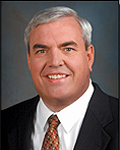Here in Peep Town

“FBI is a gang of professional criminals paid by the government to break the government’s own laws. FBI itself is above the law. It buries its agents so deeply in anonymity that they can’t be identified by any central authority. They operate freely, unconstrained by oversight or accountability. Is it any wonder that some of them, armed with the most sophisticated privacy invasion tools in existence, use those tools for their own ends?”
“No one will believe you.”
The Postal So-called Police
Captain Chappaquiddick
Faggy Boys Inc.
Our Elected Representatives
A Peepie Primer
Robert the Pervert
The Three Stooges
I Telephone the President
An Arrest?
How the Peepies Enforce
Mob Rule
Considering a Career?
Senator Couldnthelp
Circus Life
A Love Letter
Hal the Pig, CPA
American President Lines
The Cable Guy
Hard Work Pays Off
A Visit from the Plumber
Freaky Me
The Casting Couch
Peep Town Now
The Postal So-called Police
 The Peepies love to steal. One of the things Peepies love most to steal is mail.
The Peepies love to steal. One of the things Peepies love most to steal is mail.
I began to have trouble in 1999. The Peepies were reporting to me via their talk-behind-the-back routine the contents of mail I was sending from the post office at 1400 Pine Street.
On April 15, 1999 I wrote a letter complaining of a series of mail thefts to Postal Inspector in Charge, Northern California Division, P.O. Box 88252, San Francisco, CA 94188-2528. I received in response a form letter signed by one R. Douglas Nunes, Team Leader - Internal Crimes, Northern California Division. The letter requested me to fill out an enclosed questionnaire and return it. I duly filled and returned. I never heard anything further.
That series of thefts was just for openers. During the last two weeks of July 2006 a total of nine, count 'em, nine packages were stolen from my post office box at 150 Sutter Street. They had to have been grabbed by a postal employee paid by the Peepies.
As soon as I discovered the theft I reported it to the post office manager. She assured me beyond a shadow of a doubt that no one who worked in her branch could possibly have stolen anything.
I called the local office of the U.S. Postal Inspector. The moron who answered assured me beyond a shadow of a doubt that no mail could possibly have been stolen by anyone from a United States post office.
I called the police and met the police officer at the branch. The manager told him I needed to fill out Form 1510 to report a theft. He called the Postal Police. No one from the Postal Police would come out to the branch to investigate.
I went home and filed nine Forms 1510 online, one for each stolen package. I received an e-mail confirmation for each form. I also filed an online police report of the thefts.
A few days later I got the local postal inspector's direct phone number from the post office manager. I called him, a dude named Benjamin Louie, and explained what had happened. I also sent him photocopies of the forms I'd filed.
I waited. Time passed. No one contacted me. I called Inspector Louie again. He could shed no light on the status of any investigation into the thefts. On the contrary, he told me a story, my memory of what is vague, about an employee in the inspector's office going on vacation or getting transferred and another employee being unfamiliar with her work; something like that, anyway. In addition, he told me that before the Postal Police investigate anything they look for a pattern of criminal conduct. Nine packages stolen in two weeks wasn't a pattern?
More time passed. More than two years passed without hearing anything from the Postal Police. I did a little research to find out how the Postal Service is managed.
BOARD OF GOVERNORS
The Board of Governors is an eleven-member panel comparable to the board of directors of a corporation. Nine members are appointed by the President, subject to confirmation by the Senate. The nine presidentially appointed governors choose a Postmaster General, who becomes a member of the board. These ten, in turn, choose a Deputy Postmaster General, who becomes the eleventh member.
POSTMASTER GENERAL

The Postmaster General is head of the Postal Service. He is appointed by, and reports to, the Board of Governors. Even though he is a governor himself, he can be relieved of his post by a vote of the other governors.
The Postmaster General was John E. Potter.
CHIEF POSTAL INSPECTOR

The Postal Inspection Service enforces laws relating to criminal abuse of the postal system. The Chief Postal Inspector is appointed by, and reports to, the Postmaster General.
The Chief Postal Inspector was William Gilligan.
INSPECTOR GENERAL

The Office of Inspector General is responsible for investigating internal misconduct such as internal fraud, waste, and abuse. The Inspector General is appointed by the Board of Governors. He is independent of the Postmaster General.
The Inspector General was David C. Williams.
It seemed to me that these three individuals bore most of the responsibility for the Postal Police's shrug-of-he-shoulders attitude toward mail theft. I wrote each of them an identical letter.
Here are the letters I wrote to John E. Potter, William Gilligan, and David C. Williams.
I received the same reply from all of them.